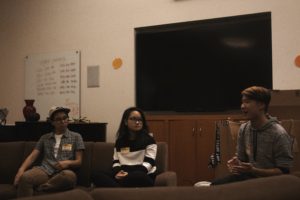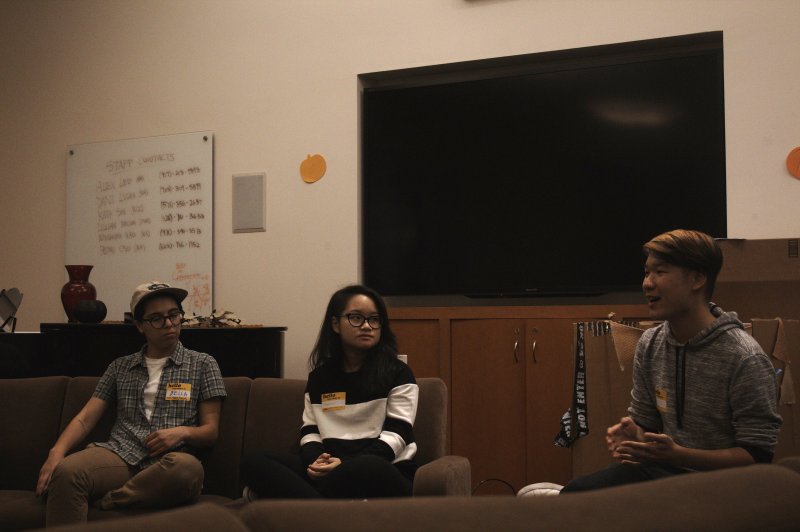
Sharing Our Stories at Stanford, more commonly known as SOSAS, has been sharing the stories of LGBTQ+ students at Stanford for almost two decades through the LGBT Community Resource Center.
SOSAS is a space where LGBTQ+ students share their stories with residences and student groups in panels. Panels generally consist of four volunteers who are aligned with the LGBTQ+ community.
Stories range from discovering one’s identity to experiences growing up as LGBTQ, said SOSAS event coordinator Cheng-Hau Kee ’19.
“On one side there are the panelists — having them tell their stories, explore their identities — really creating an affirming space for them to be themselves and to explore what that really means,” Kee said.
For the first half of the panel, panelists were welcomed to share individual stories and experiences. Anecdotes varied from a chronological retelling of discovering one’s identity to describing the struggles the speaker faced when finding one’s self.
This was followed by a question-and-answer section in which panelists and audience members were encouraged to ask questions “with good intent,” meaning that questions are not meant to insult or attack, but instead to understand and empathize with the speaker.
One panelist, Ryan Mathias ’19, said he particularly enjoyed having students ask him about his experiences and how they have shaped him as an individual.
“My favorite part about being on a SOSAS panel is being able to answer questions that people would be afraid to ask me outside of that environment,” Mathias said.
Mathias, like all SOSAS panelists, had to undergo individual training with leader Shahpar Mirza ’19 before speaking on a panel. Training is used to craft relatable and empathetic stories, Mirza said.
“A different structure works for each story; each story is unique and you can learn something from each one,” Mirza said.
According to Mirza, SOSAS aims to create a space where different communities become part of the dialogue on acceptance. The audience has the opportunity to ask panelists about their stories at the end of the panel.
“Freshmen afterwards will come up to panelists and be like, ‘Oh, I identified with this so much; I understood your story and I felt that feeling before.’ I love seeing that,” Mirza said.
Both Mirza and Kee noted that different dorms have different reactions to the panels: Freshmen dorms usually have smaller, more intimate conversations about discovering one’s identity while upperclassmen dorms tend to ask questions about improving acceptance.
SOSAS also puts on panels for Greek life, which Kee describes as a more unified audience that wants to work on cultivating an open and comfortable environment for all students.
“It’s really great to see them ask questions like, ‘How can we be more accepting? How can we grow more as people? How can we grow this space?’” Kee said.
During a SOSAS panel at Sigma Nu in late October, fraternity brothers actively asked questions about how to be more accepting. One of the members, Max Pienkny ’19, who also writes for The Daily, said that he was happy to hear that the Stanford community has been accepting as a whole, but that it was important for SOSAS to share stories in Greek life.
“I thought there were perspectives given there that were very important to be told in a fraternity setting where the majority of people were white and heterosexual,” Pienkny said. “There is definitely a lot of merit in having them be able to come here and to engage in their stories that we wouldn’t necessarily get otherwise.”
Overall, SOSAS panel leaders say that responses have been great and positive like Pienkny’s, and that hearing other people’s stories has helped them to improve SOSAS as a whole.
“Just to be able to be present as they’re telling it and to absorb their stories and to process it has been one of the most powerful things for me,” Kee said.
SOSAS panels can be organized and presented upon the request of the dorm staff.
Interested parties can request a panel on the LGBTQ Community Resource Center website.
Contact Gillian Brassil at gbrassil ‘at’ stanford.edu.
